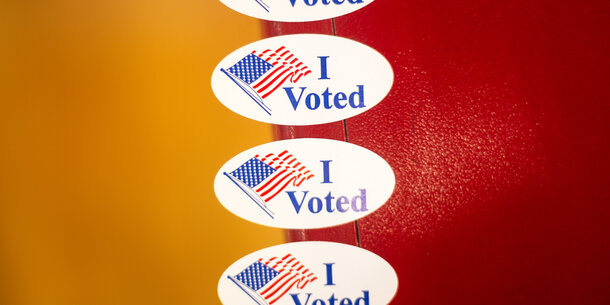On Tuesday afternoon, Democratic lawmakers stood on consecrated ground — the foot of the Edmund Pettus Bridge in Selma, Alabama.
The members of Congress weren’t there simply to honor the sacrifices of the late civil rights icon John Lewis and the hundreds of other marchers who braved police tear gas and clubs for the right to vote, as they’ve done in the past. They were gathered to announce the introduction of the John R. Lewis Voting Rights Advancement Act (H. R. 4), transformative legislation that would restore the protections of the Voting Rights Act that Lewis fought so hard to enact as a civil rights activist.
In 2013, the Supreme Court’s infamous Shelby County v. Holder decision invalidated the 1965 law’s Section 5 “preclearance” requirements, which prevented jurisdictions with a history of racial discrimination from changing voting rules without permission from the Justice Department or a federal court. In the ruling gutting the landmark civil rights law, Chief Justice John Roberts waved away concerns of new voting restrictions, claiming that “nearly 50 years later, things have changed dramatically.”
Unfortunately, things have changed dramatically — just not how Roberts thought.
The danger of new voting restrictions is no longer theoretical. It’s a grim reality. After record voter turnout in 2020, Republican state legislators around the country have responded by cracking down on the right to vote. Brennan Center research shows that this year, 49 states have introduced over 400 bills with provisions that make it harder to vote, 30 of which have become law in 18 states. Just last month, the Supreme Court’s decision in Brnovich v. Democratic National Committee weakened Section 2 of the Voting Rights Act, degrading citizens’ ability to challenge policies that lead to voting discrimination.
This all paints a bleak picture as the nation’s first redistricting cycle since the Shelby County decision looms, potentially redefining the balance of power in Congress and state legislatures for the next decade.
As my colleague Wendy Weiser told Congress yesterday, the bill named for Lewis is an essential step in turning the tide in this war on voting rights. Restoring preclearance and strengthening Section 2 of the original Voting Rights Act would undo much of the damage from the Brnovich and the Shelby County rulings.
President Biden has placed his full support behind it, and his Justice Department has told Congress that the bill must be passed so that the federal government can properly protect Americans’ voting rights nationwide as the midterms quickly approach. The legislation would provide a desperately needed bulwark against continuing state voter suppression efforts.
Congress must pass the John R. Lewis Voting Rights Advancement Act without delay.






